Threads of Influence and the Impact of T-Shirts
- Jay Busselle

- Nov 5, 2024
- 3 min read
Updated: Nov 26, 2024
Take a moment to look at what you're wearing. Do your clothes reveal anything about who you are? In the greater marketing context, branded merch isn't just about selling a product; it's about telling a story and building a community.
Starting in the 1960s, slogans and imagery reached a hungry audience. They were often printed on banners, posters, and T-shirts to convey messages of activism and solidarity. T-shirts became the perfect canvas for expression during the civil rights movement and anti-war protests, and they helped fight the war on AIDS and free Nelson Mandela.
Here are some examples:
Vietnam War Protest Shirts: During the Vietnam War era, t-shirts were emblazoned with slogans such as "Make Love, Not War" and "War is Not the Answer." Anti-war activists wore buttons and shirts to express opposition to U.S. involvement in the conflict and advocate for peace.
Slogans played a significant role in the Civil Rights Movement of the 1950s and 1960s. One iconic example is the "I Am a Man" posters worn by participants in the Memphis Sanitation Strike of 1968, which demanded fair wages and better working conditions for Black American sanitation workers.
The University Hall takeover and strike at Harvard in 1969. Students for a Democratic Society (SDS) opposed academic leaders' engagement with military policy; the presence of ROTC programs on campus and institutional research was seen as contributing to the war. On April 9, 1969, the day after SDS pinned a list of demands on the door of the president's house, about 70 students forced their way into University Hall. At dawn the next day, Harvard University President Nathan Pusey requested that local police officers and state troopers enter Harvard. They forcibly evicted and arrested almost 200 of the occupying protestors. This set in motion larger protests, an eight-day class strike, and two mass meetings in the Stadium.
In 1967, NOW (National Organization for Women) adopted a resolution supporting the Equal Rights Amendment (ERA). In the 1970s and 1980s, activism was popularized by t-shirts bearing the NOW logo and slogans such as "Women's Rights are Human Rights" and "My Body, My Choice." These shirts were worn to advocate for gender equality, reproductive rights, and other causes. The slogan "women's rights are human rights" first appeared on many activists' radar around 1988, seven years before Hillary Clinton took the stage in Beijing. A Filipino women's coalition called Gabriela launched a "Women's Rights are Human Rights" campaign as part of their protests against the dictatorship of Ferdinand E. Marcos.
Anti-Apartheid Shirts: During the struggle against apartheid in South Africa, activists around the world wore t-shirts featuring slogans like "Free Nelson Mandela" and "Divest Now" to protest the oppressive regime and call for international action. "Free Nelson Mandela" became a well-known call from the 1960s and was seen and heard all over the world in many cultural forms, such as music and clothing. After 27 years, Mandela was released from prison in 1990.
In the 1970s and 1980s, lesbian and gay activists harnessed the power of t-shirts to make bold statements of pride and protest. The visibility of the LGBTQ+ community was a central issue, and t-shirts served as a canvas to express identity, demand rights, and challenge societal norms. As the AIDS epidemic emerged in the 1980s, these activists turned their resourcefulness toward addressing the crisis, using t-shirts to dispel myths, raise awareness, and fight for medical research and compassionate treatment. The era's t-shirts became symbols of resilience and solidarity, reflecting the community's unwavering commitment to equality and justice.
Silence = Death: One of the most iconic t-shirts from the AIDS crisis, the "Silence = Death" t-shirt featured a pink triangle (a reclaimed symbol of oppression from the Nazi era) and the stark message "Silence = Death." Created by the activist group ACT UP (AIDS Coalition to Unleash Power,) this design underscored the deadly consequences of societal and governmental inaction, urging people to speak out and take action.

Vintage Keith Haring, Silence Equals Death 1989 Artwork Tee

From the 1960s to the 1990s, protest T-shirts emerged as powerful tools for expressing various social movements. Protesters transformed simple clothing items into canvases that broadcast messages of pride, resistance, solidarity, and advocacy for change. More powerful and important than the slogans printed on these T-shirts was the fostered sense of purpose and belonging.
© 2024 Jay Busselle




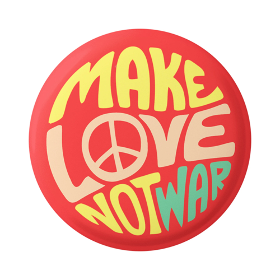













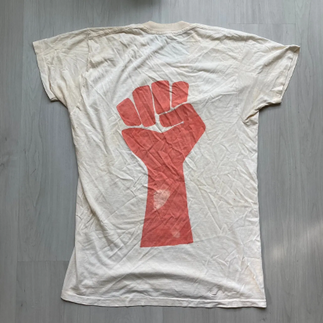

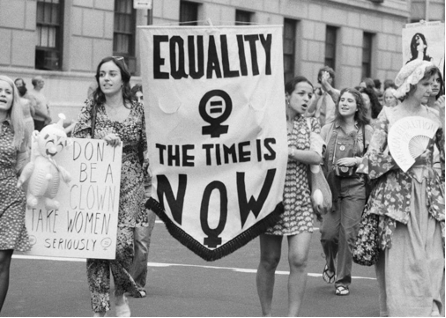

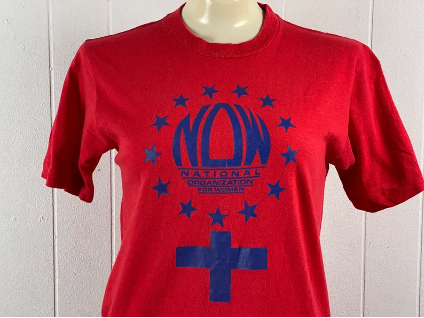

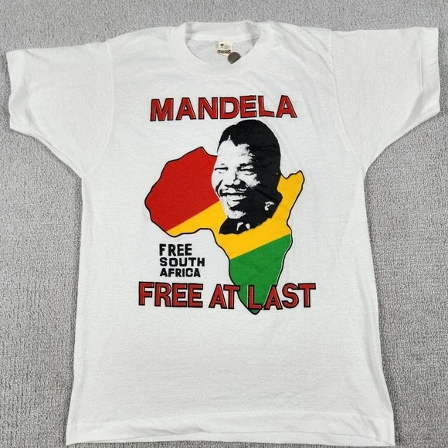

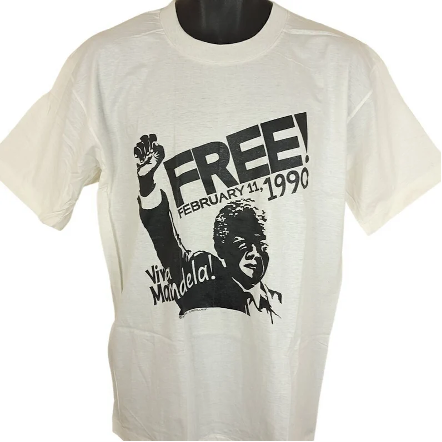

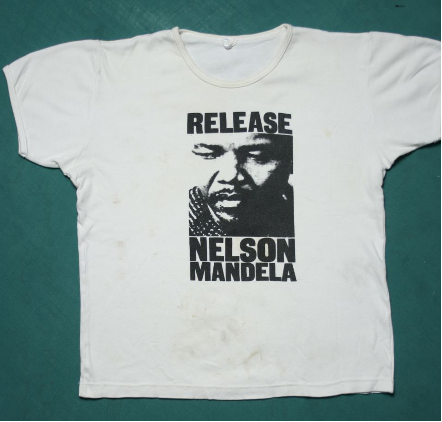

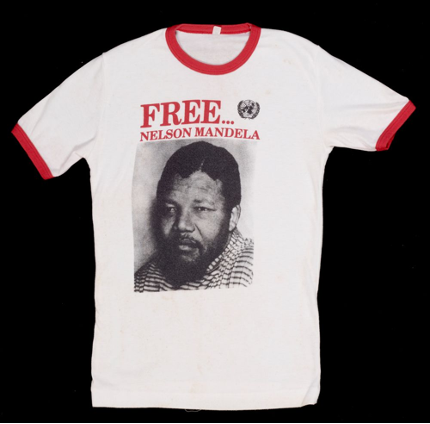



Comments